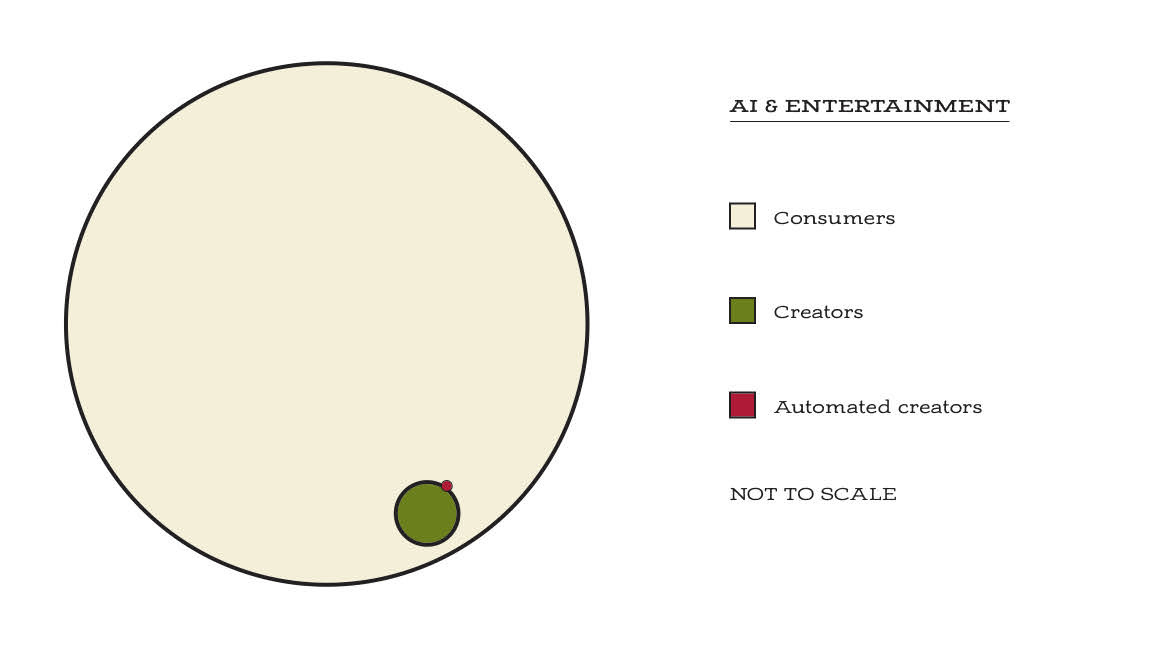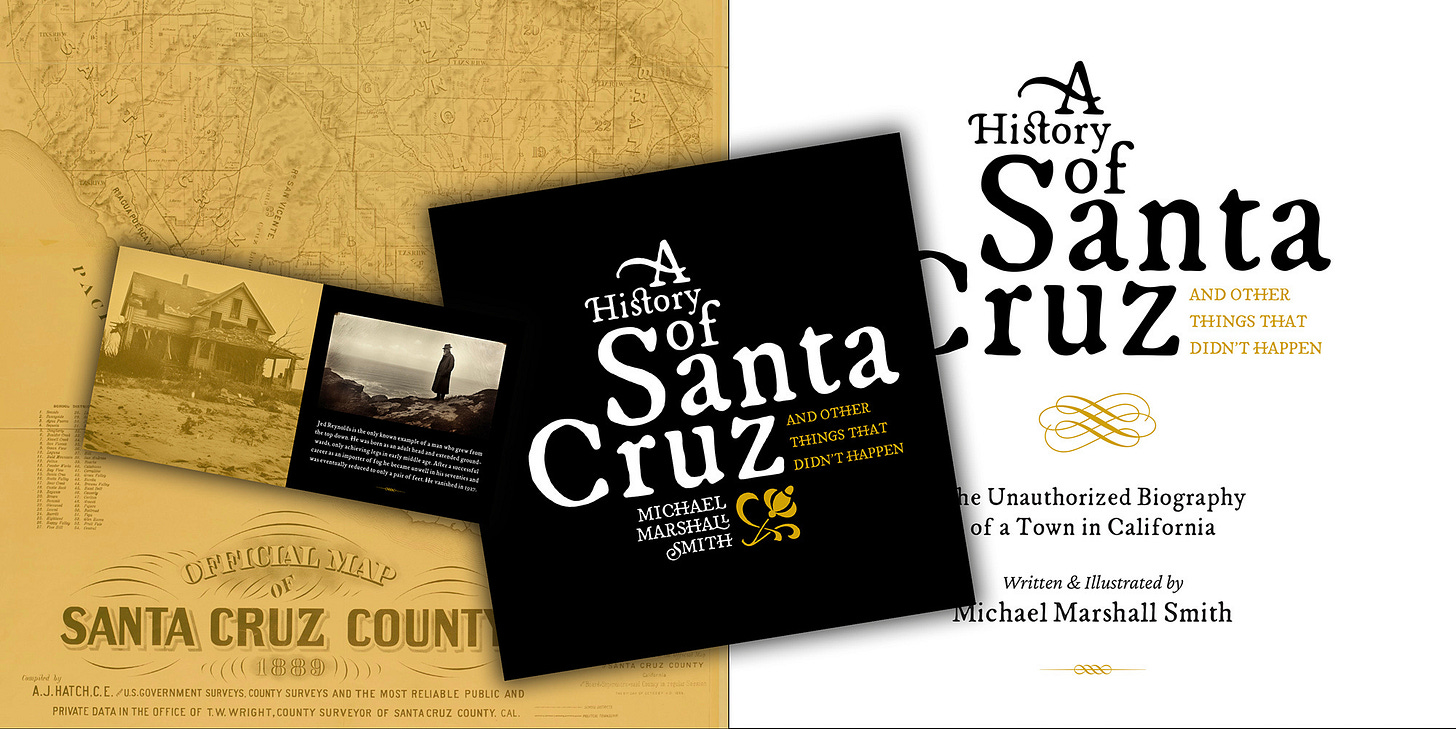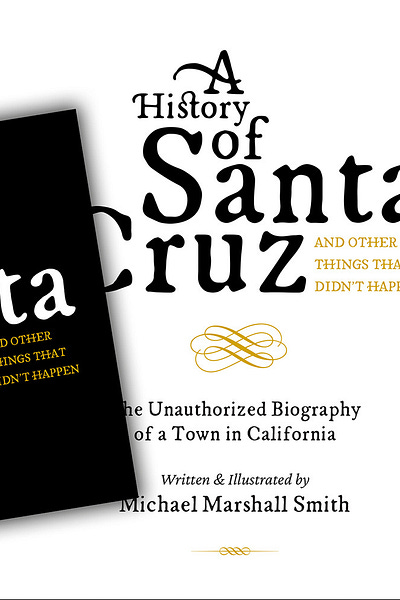Again, a discussion piece with no hills I’d actually die on. Tell me what you think.
Also: I’m intending that this be my last piece on this subject for a while, or hopefully forever. Like the oncoming Trump administration, AI is a fact — and we’re better off figuring out how to deal with that rather than endlessly whining about it. Having said which, this piece is longish and a bit rambling. Make a coffee first and get a cat on your lap. Or just delete the whole thing. I won’t judge.
And do let me know what you’d like to see more of here on this Substack.
IN THE EARLY 1990s, fresh out of college, I wound up semi-accidentally working at a company in London that organized awards and events for corporate video makers and commissioners. Explaining to staff what a new credit card did. Things called “Safer Piping Awareness”. Fun stuff like that. The organization produced a monthly magazine — conducted via an external design agency, copy sent on typed-up pages, put together through bromides on boards, the whole old-school deal. It lost money. It was a deadly slow process. It was a pain: any errors were costly and time-consuming to fix, requiring re-outputting of whole pages or cutting and pasting (in the literal, knife and glue sense) of little chunks or corrected text.
I happened upon the idea of desktop publishing, then new, and one day foolishly said: “Hey, why not let me design the magazine, in-house, using one of these new-fangled Apple Macintosh gizmos”. After a certain amount of shocked “This will never work!” and “No! For it is witchcraft!” discussions, they let me have a go.
It was not a walk in the park, to be clear. DTP software was in its infancy, driven by what were barely more than word processors with pretensions of grandeur. I spent the first year designing two- or three-color work on a computer with a greyscale monitor. The big upgrade was when we got a Mac II running at 16MHz. A pro Mac’s clock speed alone is now more than two hundred times faster: factor in multicore processing and graphics chips and faster memory, and machines these days can perform many functions tens of thousands of times more quickly. I used Quark and Photoshop before they had version numbers, and on the latter a simple drop shadow for a headline could take half an hour to render, then the same again if you’d got it wrong, and then again. There wasn’t even a drop shadow function: you had to duplicate the text, manually shift the copy to the back, move it to the desired offset, and apply a Gaussian blur. Took a bloody minute, trust me. Messed it up? Start again. And in that era Macs crashed many times a day, especially when pushing their limits.
But it worked, and by the end of my time at the company I was designing and producing everything they did including catalogues with several hundred pages, and significant money was being saved. I was in no sense a professional (or especially good) graphic designer. But by doing this, of course… I put a number of experienced, trained, and more talented graphic designers out of work.
Is this evil, or progress?
Similarly, at that time you sent design files around London by saving them to large SyQuest disks and giving them to a paid motorcycle courier to whizz to the printer (again, at significant expense). Now you email or DropBox them instantly and the couriers are all out of a job. Evil? Progress? My boss at that time didn’t have a computer on his desk, because all his correspondence was done by a paid secretary. Sure, he’d have an assistant still now, but he’d at least fire off his own emails.
That “I have a job because I can type” niche is dead. Evil? Progress?
Computers have been taking people’s jobs for a long time, changing the employment landscape in the same way the Industrial Revolution did back in days of yesteryore. You can fight it but you’re going to lose. I’m taking this wander down memory lane in relation to AI, of course, and there is one clear and material difference. AI models can only do what they do because they’ve been fed the output of countless creatives who were not paid for that work. But while that’s a very important issue I think it’s a separate one, and also era-specific (it’s happened recently, but won’t forever, once the AI start generating their own raw material) — whereas the question of the impact upon the creative professions will be with us until the end of time.
So that’s what I’m concentrating on in the following.
THERE HAVE ALWAYS been two main groups when it comes to entertainment (broadly defined). People who enjoy consuming it, and people who are drawn to produce it. The second group are pretty much always part of the former, so maybe the creators are actually a subset of consumers. Whatever. My point is you can be part of that larger “consumer” group and have zero interest in being part of the smaller one of “creators”. I know lots of people who are obsessively into music or constantly reading, but cannot play a note on any instrument and have absolutely no desire to write a novel. And why should you? You can enjoy being warm without wanting to be the sun.
Personally, while I’m no sun, I’ve always wanted to at least lift up the hood and have some understanding of where the light comes from, maybe change the color a little, or reflect it in a slightly different direction. That’s a personal thing. And a badly mixed metaphor. Sue me. I’ve done my ten thousand hours. I can write how I want.
There’s a smaller third group, however. People who need or want to create without being able to. People who can’t write, but have to come up with a speech or corporate mission statement. People who need a piece of music or image for something but can’t play, compose, or paint. In the past, these people either had to do without, and struggle on themselves — or pay a creator to do it for them. There’s a sub-set of this group, of people who don’t need the music/words/image, but want the kudos (and possible income) from having made it: people who want to be a best-selling novelist without having to write the damned thing. Or to make money from having a piece of “their” music get viral usage on TikTok, though they can’t play a note.
This third group — call them the “automated creators” — is where the crux of the AI issue focuses. See the above half-assed diagram. I’ve allowed for overlap between automated creators and real creators for two reasons: (1) there will be times when real creators reach for the AI tools as a matter of speed and expedience (as when writers like me use AI to produce graphic headers for their pieces, which currently gets you a real ticking off from the schoolmarm faction in Substack Notes), and (b) real creators may subscribe to AI tools to play with and to use as a starting-point for acts of creation. As I did with my A History of Santa Cruz posts, which were all pieces of made-by-me text inspired by made-by-AI images.
And here they all are, collected in a PDF, in case you missed it when I posted it before.
NOW. Some of that huge “consumer only” group is going to be satisfied with the output of the “automated creator” group. And that “automated creator” group is going to take work from the “real creator” group (much as I long-ago took work from “real”designers, through the new technologies of desktop computers and DTP).
But the main people who are going to be handing over cash for the tools AI is selling is that tiny automated group. They’re the market. Unless that group becomes big and wealthy enough to pay for all the AI, creative artificial intelligence isn’t going to be anywhere near as profitable as everybody thinks. Sure, right now there’s the fake profitability of share price, but as the current streamer crisis shows, that’s a bubble that won’t keep swelling forever — and comes a point where everybody realizes that real money was never being made and the whole thing starts to rapidly subside.
Bear in mind I’m only talking about the entertainment-generation side of AI. It’s going to have vast applications in many other fields and AI bros will continue to get absurdly rich. But focus down on the making-of-entertainment. My suggestion is that it’s this third group that’s the core market for AI, and of all the three groups listed, it’s by far the smallest. Entertainment AI isn’t going to be quite the cash cow the tech guys are expecting — however many real creators it puts out of business in the process.
And like the brave new dawn of streaming services, may turn out simply not to work, once the Gold Rush period is over. People like things made by people. All the studios and publishers have to do is tell the truth about whether something’s made by humans or AI. And we trust them to do that, right?
No, of course we don’t. In which case, why give them our money?
NOT LEAST BECAUSE the people you’d think might be most drawn to AI — those who like seeing and experiencing new art — are in fact the least attracted. The people who are in that “real creator” group, and whose lives are driven by the desire to make something — and the consumers who enjoy art for its own sake.
A few days ago I happened upon an AI music site. In a couple of minutes I was able to generate a piece of soundtrack music that was likely better than anything I could have come up with by traditional means, despite a background in music and an ability to use the instruments and tools. So what’s the point of me doing it? Similarly, I know if I want to write someone a paragraph in French or Finnish, ChatGPT will do it in two seconds flat, whereas for me it’d be a task in the short-term and also have involved long-term learning. So what’s the point of me learning Finnish or French?
The point is in doing it, and in doing it yourself, and you either see and feel that or you don’t. It is a choice, an urge, a feature of your personality which is either in-built or can be acquired. Creators gonna create. It’s what they do.
But, just to briefly argue against myself… I’m not yet so old that I’m prepared to dismiss something simply because it’s new and different and challenges the way things were before. On new year’s eve, for example, I learned that ChatGPT can now do tablature. I thought I’d test it. I asked it for tab for the intro to Romeo and Juliet, by Dire Straits, with as much detail and background as possible. Seconds later it provided me with it — with genuinely useful notes on nuance and performance. But… the tab was in regular tuning, and I know Knopfler plays it in Open G. So I quizzed Chat about that. It came straight back explaining it’d presented it that way because it didn’t know that I knew about open tunings, so was trying to make it accessible — but it now realized, given I’d asked for detail, that it should have done it properly. My bad, it admitted, genuinely seeming a bit hangdog. So then: bang, here it is in Open G. But (I further asked, rather disingenuously), shouldn’t it also be capo-ed at the fourth fret? It came straight back admitting that it should, while politely reminding me that if I was going to be like that about it, it’s actually (as I already knew) a capo on the third fret. I thanked it for its services and wished it a happy new year. It cheerily wished me the same, and the best for my musical journey in 2025.
This is remarkable… even despite the fact that to get the right answer, I had to know the right answer in the first place. Gonna be a LOT of that happening while the tech finds its feet — but the bottom line is that this is new and cool and groovy, and it’s here to stay. As I’ve said before, it’s too useful, and people are making too much money. You cannot hold this back. We are witnessing one of the big break points in human history.
But it’s not art, precisely because it’s that easy. As the philosopher Michael Oakeshott said (Notebooks 1922-1986), “poetry & art depend upon discomfort, mystery, unresolved contradictions, suffering & a feeling of not being at home in the universe.” AI cannot replicate that, which is why its output always feels a little uncanny, floaty, untethered. It’s math, not magic. It can copy but it can’t create, it can play but not feel.
It’s the difference between digging your own well and hauling up the water, and buying it in cheap little bottles from the supermarket. Both slake a thirst, and the latter is way more convenient, but it’s not the same experience. Perhaps closer, it’s the difference between making a lasagna yourself from scratch and buying one from the chiller cabinet in a gas station: because however good your lasagna, as the person who made it, you’ll never quite feel you nailed it. You still have the process in your head, and will have been chasing some uncatchable dream lasagna… whereas AI doesn’t know or care about that part. It didn’t make anything. It didn’t dream. It juggled balls made by other people. Something can look like lasagna without being it. What makes the core difference is knowing the cook did it themselves, for point of it.
I’ve never been an innately talented graphic designer. On the other hand, I can make things look exactly the way you want, based on how other people have done it. I too am a copyist, merely adding a little bit of my own thing. I feel for the artists who’re mad about Midjourney working off their raw material, but I know for a fact that all my novels got thrown into the LLM hopper for prose. That’s a genie that’s not going back in the bottle. Live with it. Work with it. Onwards. Make the shit that AI can’t dream of making… precisely because it cannot dream.
AI may take our living (for a while) but it can’t take our souls, or make the slightest inroad on the desire to create and make and find new things, to copy at first but then pour enough of yourself into it that it becomes a new thing.
The point of doing something… is that doing it, is the point.






Agreed. At 52, I'm trying to learn how to compose music. I don't learn as quickly as I used to, and even with a musical background, it's a real struggle. I've been tempted many times to give up. At one point I said to myself, "Why bother doing this when AI can do it faster and someday perhaps better than you ever possibly could?" That thought pissed me off so much that I decided I should continue BECAUSE of AI. Because I am human, and I want to make human music. Let it make its robot music. Robot music is not the same.
I've been teaching a Humanities course on AI for the past 4 years. They have to create using AI and then analyze it and assess the ethics of their output. It has been amazing because students KNOW what is good writing/art/music/video and what isn't even if they aren't experts. They can tell what is AI and what isn't (there's a lack of humanness to it that they all call out). But really where they always find new ways of seeing AI is in equity and inclusion -- where it fails and where it succeeds. They give me hope for the future.